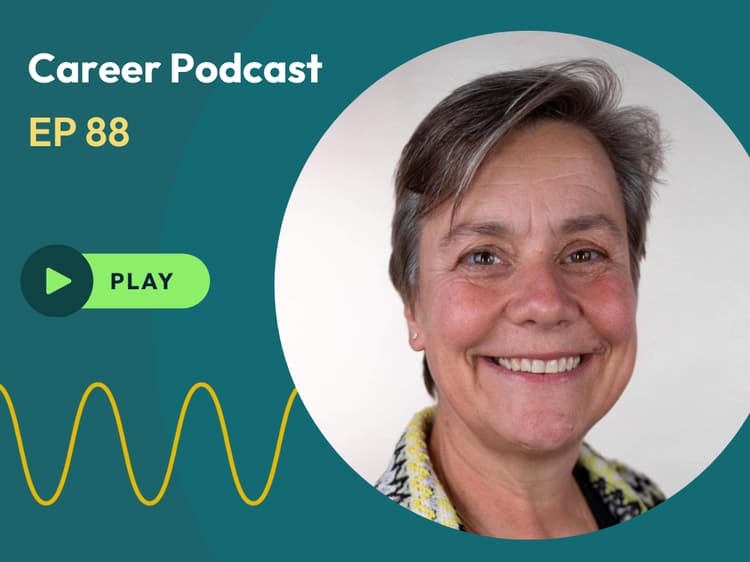Breaking the Field-Headquarters Divide
Yvonne's career stands out for something relatively uncommon in the UN system: her deliberate movement between field operations and headquarters roles. While many professionals specialize in one track or the other, she intentionally bridged both worlds throughout her career.
"In New York, everything is always about something else. It's a very politicized environment where member states have interests," Yvonne explains. "Whereas in the field, your goal is to improve the lives of the people that you serve. Your perspective becomes very different."
This dual perspective proved invaluable when she served as country director in Haiti, watching Security Council discussions about mandate renewals while experiencing the ground reality. "It's as if we speak about different countries," she notes, highlighting a persistent challenge in international development work.
Leadership Lessons from Crisis Zones
Yvonne's career took her through some of the most challenging contexts imaginable: Haiti during periods of extreme instability, Sudan (where she was eventually expelled), the Syria crisis response, and Palestine. These experiences shaped her approach to leadership in ways that classroom training never could.
"There was a moment when I started to think, 'this too shall pass,'" she reflects on managing Haiti's daily crises. "There is always a new day, always new opportunities. The black and white is mostly grey and different shades."
Her key insight? Learning to let go of the illusion of control while building strong, diverse teams. "I'm the visionary big picture person. The number two I want is the person who dots the I's and crosses the T's," she explains. "You want somebody who comes to you and starts talking about things you're not interested in, because those are the things you're not seeing."
The Reality of Career Progression
For professionals eyeing senior leadership roles, Yvonne offers practical advice drawn from experience. The jump from operational to strategic thinking (particularly the P4 to P5 transition and beyond) requires more than just accumulated experience.
"Don't shy away from coaching," she emphasizes. "I have used coaches quite frequently to help me make those steps. It allows you to think about your career path and strengths and weaknesses in a different way."
She also advocates for thorough interview preparation, including recording yourself to understand pacing and content. "When you have 45 minutes for five questions, that means about eight or nine minutes per question. That's a lot of time, and practicing helps you realize how much information you need to highlight."
Navigating Cultural Differences
Yvonne touches upon a sensitive but crucial topic: how the UN's Anglo-Saxon professional culture can disadvantage candidates from other cultural backgrounds. Her advice is pragmatic rather than idealistic.
"Unfortunately, some of your cultural assets are less helpful than others in the UN context," she acknowledges. "You need to be aware of this and adjust to the environment you're in. If you want to work in that context, that's the working culture."
This cultural adaptation extends beyond interviews to daily work life. "When you step into the environment of the United Nations, part of your own background and culture, you leave at the door. You become an international civil servant with all the pros, but also the cons that come with it."
Women in International Development Leadership
As a woman who reached senior leadership while managing non-family duty stations and maintaining family relationships, Yvonne offers candid insights about the sacrifices involved. Her success required a supportive partner (also in the UN system), resilient children, and careful time management.
"It's been really tough to go to non-family duty stations, but that's also an opportunity to really throw yourself into the work fully and be with the family fully when you're there," she explains. The advent of digital communication technologies made these separations more manageable than in her early career.
A Changed World
Perhaps most striking is Yvonne's reflection on how the international development landscape has shifted during her three decades of service. She observes a move from "optimistic, altruistic outlook of member states to one where we're back to a very harsh nationalistic agenda."
Looking at the current state of countries where she served, Sudan in civil war, Haiti controlled by gangs, ongoing crises in Syria and Palestine, she grapples with questions about lasting impact. "When you look at the state of the world, you think, was there much of a point?"
Yet she finds hope in the continuing motivation of young professionals entering the field. "We need the eternal optimists, we need people who are willing to go out and make a difference and contribute."
Essential Advice for Aspiring Leaders
Yvonne's recommendations for the next generation center on several key themes:
- Invest in coaching early: Don't wait until senior levels to seek professional development support.
- Master languages: Beyond the two official UN languages, any additional language skills provide significant advantages.
- Build diverse networks: Professional relationships serve as sources of opportunities, knowledge sharing, and emotional support in an inherently isolating career.
- Maintain perspective: "Perfect is the enemy of the good" and "this too shall pass" are mantras that help navigate daily challenges.
- Go the extra mile: "Everything comes with the extra mile. There's nothing I have done that came because I took it easy."
Listen to the Full Conversation
This article captures highlights from a rich 48-minute conversation that covers career strategy, leadership philosophy, cultural navigation, and personal reflections on three decades in international development. The full Impactpool Career Podcast episode provides deeper insights into each topic, including specific examples from Yvonne's assignments and detailed advice for professionals at various career stages.
For anyone considering or currently pursuing a career in international development, Yvonne's combination of practical wisdom and honest reflection offers invaluable guidance for navigating both the opportunities and challenges ahead.
